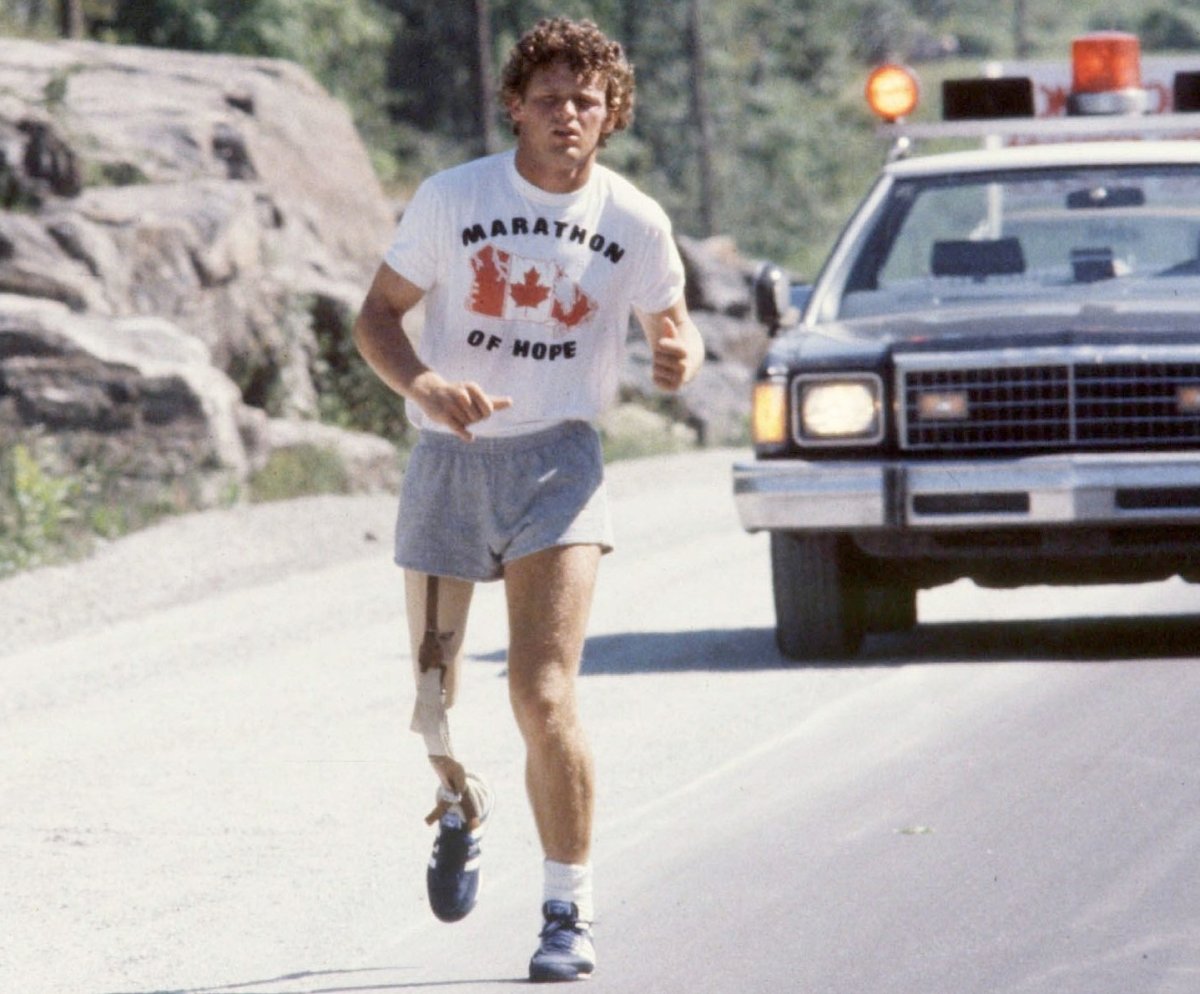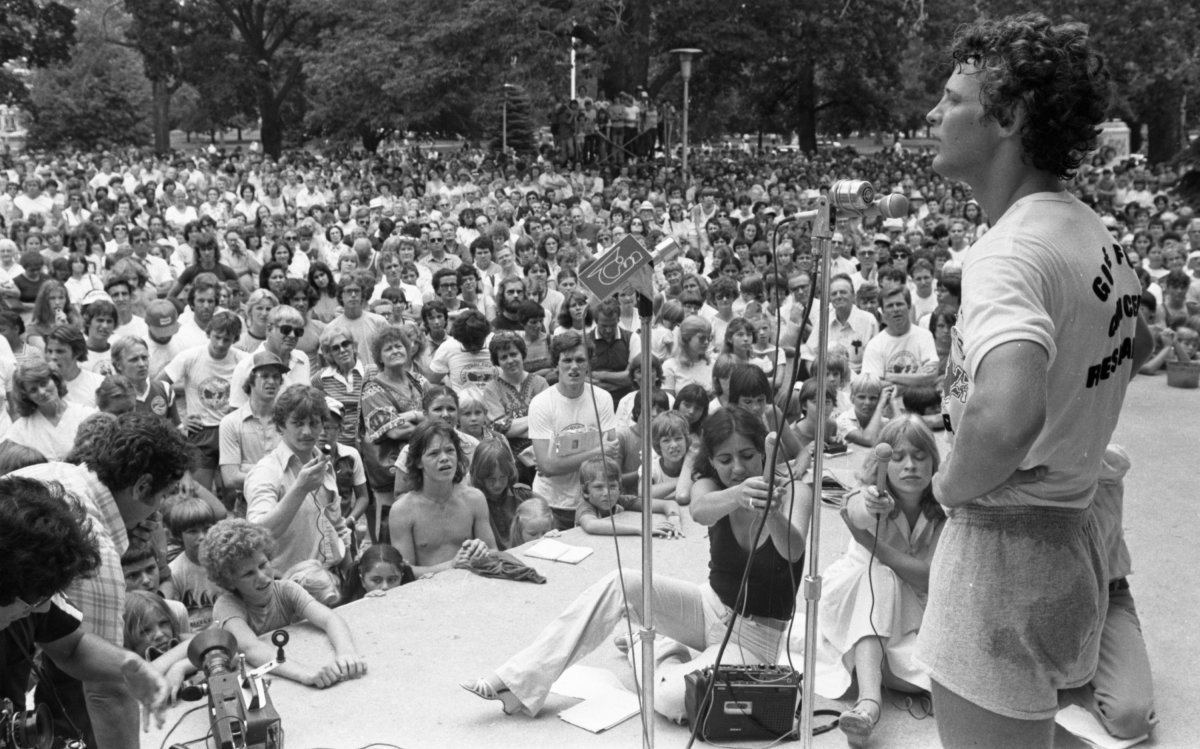The Terry Fox run is returning as an in-person event for the first time in London, Ont., since 2019.

The 42nd annual run will kick off at Springbank Park Sunday with registration opening at 8 a.m.
While the 40th anniversary was interrupted by the COVID-19 pandemic, Peter Ferguson of Terry Fox London says that some time will be set aside to honour the important milestone this weekend.
“We’re kicking off at about 9 a.m. with some guest speakers and some musical tributes and the official start time is at 10 a.m.,” he said.
“We have all kinds of things going on. We’ll have a few words from the daughter of Ron Clahoun, and Ron of course was the one who helped Terry Fox set up his Marathon of Hope back in 1980.”

Additionally, Canadian Olympic rower Jennifer Martins and Canadian Olympic basketball player Miranda Ayim, both of London, are on the list of guest speakers for Sunday’s event.
“We also have a musical tribute to one of our members, Heidi Kokott, that passed away earlier this year,” Ferguson said.
“Another song is going to be performed that’s a tribute to Terry Fox by Brett Kingswell.”
Over the course of 42 years, the Terry Fox run has collectively raised over $850 million across Canada. Ferguson said that London has contributed roughly $4 million to the grand total.
“We’re very thankful to the people of London,” he said.
Referencing Terry Fox’s national impact, he added that “the evidence is in the survival rates.”
“One of our special invited guests is Dr. Hasan Mustapha and he is a survivor of the same cancer that Terry Fox had,” Ferguson said.
“It’s an example of where those survival rates at some of these cancers are just because of the money that is spent on research.”
Rob Matic was diagnosed with colon cancer at the age of 28 in 1995. He said the science behind cancer treatment is “ever-evolving.”
“The treatment centres available even five years ago, compared to 1995, were ‘head and shoulders,’ totally different,” he said.
Matic said that early in his journey, he decided to “never take no for an answer.” He said that by doing that, he went from having zero options to having a bunch of different ones.
“I had immunotherapy treatment, which I was going to Toronto back and forth for, for almost five years,” he said. “The only negative side effect of that was Toronto traffic.”
However, Matic said the cancer has since returned and is currently back on chemotherapy in London and has been since June.
“The therapy kind of put my immune system into hyperdrive and we saw some fantastic results, but you know, eventually the cancer caught up,” he said. “But chemotherapy versus immunotherapy, it is completely night and day.
“This has taken a bit of a toll on me,” he said.
“But I said to my doctor, you know, as long as it’s working, I’ve got that light that I can focus on. Even just after three treatments here in London, we found that the tumor is smaller now than it ever was my entire time when I was going to Toronto, so it’s definitely working.”
- What is a halal mortgage? How interest-free home financing works in Canada
- Ontario doctors offer solutions to help address shortage of family physicians
- Capital gains changes are ‘really fair,’ Freeland says, as doctors cry foul
- Budget 2024 failed to spark ‘political reboot’ for Liberals, polling suggests
Matic has also been working to raise awareness on Lynche syndrome — a term used when doctors find a gene that runs in the family and causes cancer.
He said the medical condition affects one in every 278 people.
“Essentially, if you have Lynche syndrome, it doesn’t mean you’re going to get cancer, but it does mean your risk is increased for a number of different cancers and in colon cancer in particular, the risk is increased by 80 per cent,” he said.
Matic said that he is eager to join the crowds in Springbank Park Sunday for the Terry Fox run, having recently his first 5k walk this week.
“It’ll be my eighth run straight,” he added.
For more information, visit the Tourism London website.









Comments